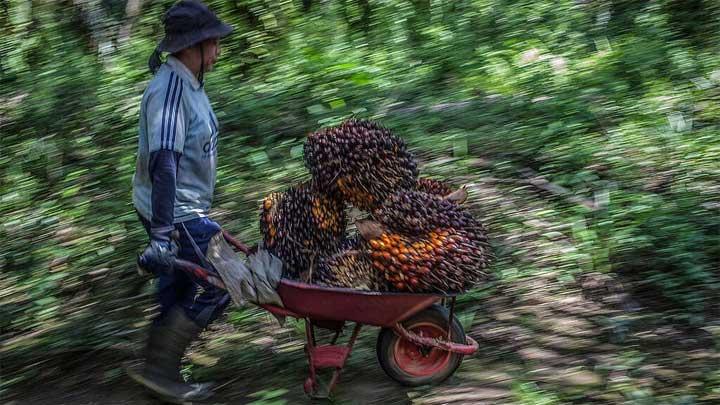Our Terms & Conditions | Our Privacy Policy
EUDR Takes Full Effect on Dec. 30; Indonesia Pushes IEU-CEPA Finalization, Malaysia Readies Compliance
TEMPO.CO, Jakarta – The EU Deforestation Regulation (EUDR) is due to be implemented on December 30, 2024, requiring companies selling soy, beef, palm oil, and other products in the 27-nation bloc to prove their supply chains do not contribute to the destruction of forests.
Indonesia and Malaysia, who together account for about 85% of global palm oil exports, have previously accused the EU of discriminatory policies targeting palm oil.
The Indonesian government has been working to find a middle ground for the EUDR in its Indonesia-European Union Comprehensive Economic Partnership Agreement (IEU-CEPA) negotiation with the EU.
“Certain policy issues remain unresolved, meaning that we are still looking for a true middle ground on those issues,” said the Director General of the International Trade Negotiation at the Trade Ministry, Djatmiko Bris Witjaksono, at a press conference on Wednesday, September 25, 2024.
The Director General for American and European Affairs at the Ministry of Foreign Affairs, Umar Hadi, hopes for the EU to share Indonesia’s keenness to finalize the IEU-CEPA.
The European Union, Umar said, could showcase its enthusiasm to conclude the IEU-CEPA negotiation by making compromises, as Indonesia has done in past negotiation rounds.
“It seems that Indonesia has given up many concessions (for IEU-CEPA), and we hope the European Union shares our spirit because these concessions are offered to achieve compromises,” he said in a press conference on September 27.
According to Umar, anticipation rises for both parties to finalize the IEU-CEPA as the negotiation rounds, which first started in 2016, enter their 19th round this year.
Previously, the Minister of Trade, Zulkifli Hasan, said one of the contributing factors to the stagnation of IEU-CEPA’s negotiation is because the European Union keeps adding to its requests.
“We want the IEU-CEPA to conclude as soon as possible, but it depends on (the EU side),” he said on September 26.
Reportedly, Indonesia gave the EU an ultimatum regarding the IEU-CEPA, to which the minister responded: “It’s not an ultimatum, we’re just saying that it will be harder during the new government. Pak Prabowo aims for crude palm oil to become B50.”
Indonesia’s crude palm oil (CPO) exports will decline once Indonesia implements the B50, or biodiesel policy. It is estimated that the B50 program will require up to 24 million tons of CPO, while the CPO exports throughout 2023 amounted to 28.6 million tons.
The government previously revealed over 3.3 million hectares of illegal palm oil plantations in Indonesia’s forests, as conveyed by the Coordinating Minister for Maritime Affairs and Investment Luhut Binsar Pandjaitan on June 23, 2023.
In 2021, Minister Luhut explained, imaging showed that palm oil covers in Indonesia reached 16.8 million hectares. Of those, 10.4 million hectares were allocated only for private and public plantations, while the rest were community plantations. Meanwhile, it is known that 3.3 million hectares of the total palm oil plantations are located in forest areas.
Malaysia to comply with the EUDR
Malaysia is working on initiatives to ensure its small-scale palm oil producers are able to comply with the European Union’s law banning imports of commodities linked to deforestation, its commodities minister said on Friday
Equally, EU companies will be banned from exporting products cultivated on deforested land.
Malaysia’s Plantation and Commodities Minister Johari Abdul Ghani said on Friday that the country’s palm oil sector adopts stringent sustainability standards through its sustainability certification scheme.
An estimated 450,000 small-scale producers account for 27% of Malaysia’s total palm oil production, and the government is actively working on capacity-building initiatives to support their transition to EUDR compliance.
“This is important to ensure that the livelihoods of these smallholders are not affected by the implementation of the regulation,” Johari Abdul said in a statement, without providing details on the initiatives.
Malaysia also focuses on the aspects of traceability, deforestation-free, legitimate land title, and good labor practices in line with International Labor Organization standards to ensure the sustainability of its palm oil products, Johari Abdul added.
Earlier this month, the state agency, the Malaysian Palm Oil Council, urged the EU to delay the implementation of the law to protect small farmers and ensure fair trade.
The EU has resisted calls to delay its policy and said the rules are to ensure the bloc does not contribute to forest degradation worldwide.
ANTARA | REUTERS
Editor’s Choice: Malaysia and Indonesia See EUDR as Detrimental to CPO Exports
Click here to get the latest news updates from Tempo on Google News
Images are for reference only.Images and contents gathered automatic from google or 3rd party sources.All rights on the images and contents are with their legal original owners.



Comments are closed.